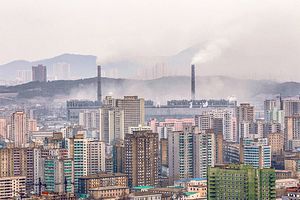Environmental engagement with North Korea might open up a window for engagement that has been slammed shut by fractious denuclearization politics. Carefully nurtured cooperative relationships developed over time between international agencies, NGOs, and the North Korean government hold promise as vehicles for confidence-building, giving the DPRK a stake in regional cooperation based on their own interests.
The North Korean government would appear to have a compelling prima facie self-interest in participating in the global climate change mitigation and adaptation project centered on the UN Framework Convention on Climate Change (UNFCCC). Capacity-building incentives that feed into the leadership perpetuation and state survival imperatives of the North Korean government appear to drive North Korea’s interaction with the UNFCCC. Environmental vulnerabilities matter, because they could threaten the stability of the Kim government. This vulnerability gives North Korea a stake in advancing environmental cooperation based on its own self-interest, a dynamic that does not exist in relation to denuclearization politics.
If we examine North Korea from a systems perspective, factoring in the emergent effects of complex interrelationships between different actors within and outside the DPRK, we see that the nuclear program is nested within interrelated economic, social, and ecological change processes taking place at multiple levels, from local to global. Climate change is but one of these change processes.

































